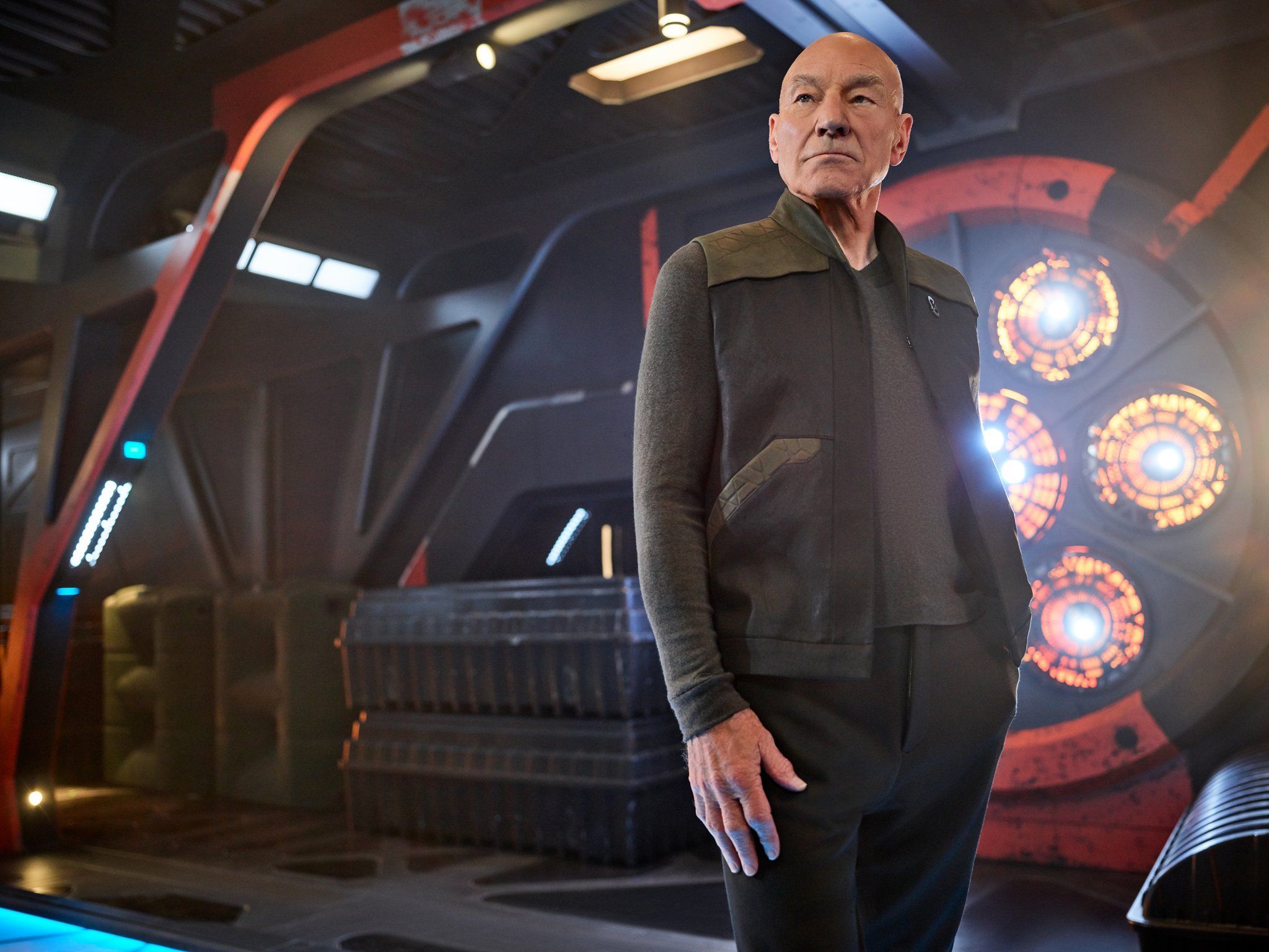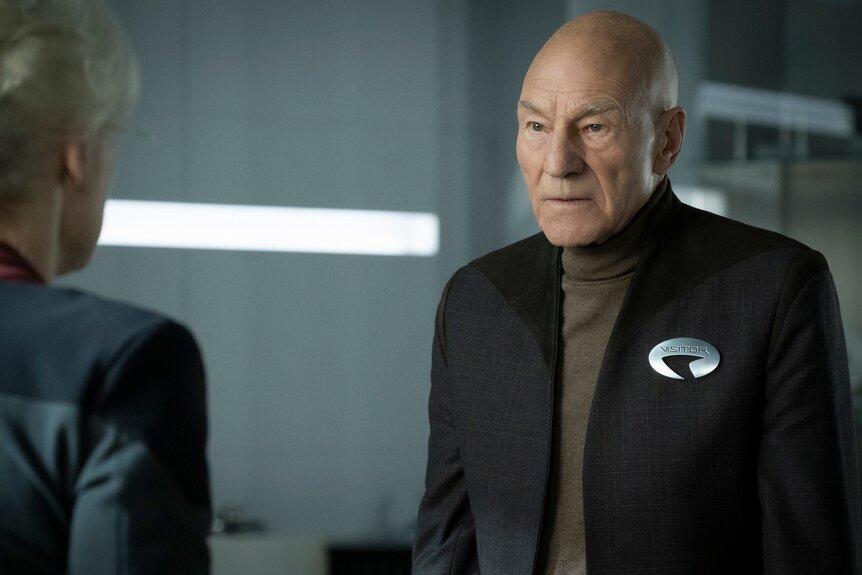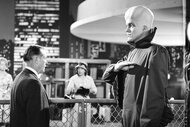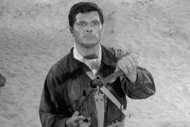Create a free profile to get unlimited access to exclusive videos, sweepstakes, and more!
Star Trek's Picard is not as perfect as you remember

Just three episodes in, Star Trek: Picard on CBS All Access has established itself as a top-notch drama — as well as something new for the franchise. Instead of continuing the voyages of the U.S.S. Enterprise, it follows the once-privileged Admiral Jean-Luc Picard, who is no longer an officer. With his attempts at returning to Starfleet thoroughly rebuffed, Picard is reimagined as a scrappy hero operating outside the law instead of the man Star Trek: The Next Generation periodically reminded us was "a living legend."
But despite all this, the series still clearly sees Jean-Luc Picard the same way TNG always did: unerringly right, all the time. Star Trek has always presented Jean-Luc as infallible. But fans would be better served to remember that — for all we love him — Picard is a man with blind spots and flaws.
From TNG's very first episode when Picard faces down Q to the "All Good Things..." finale, even when Picard is wrong, he is right. It doesn't matter if his choices way back on the Stargazer sent Jack Crusher and others to their deaths, Picard was doing what he believed was best. As long as this remained true, then that made it the right thing. Such is the nature of hero-worship. Understandably, any series bringing back Star Trek's most beloved captain of all time (sorry, Kirk) would continue to treat him ever thus.
But one of the things Picard makes clear is that this view of Starfleet's once-great helmer of the Enterprise is not valid. Even as viewers thrill to hear the captain tell his pilot to "Engage" once more, it would be good to keep his most significant weakness in mind as he and his crew launch toward the stars. He's an arrogant and self-centered man, always convinced he knows better than everyone else.
The entire plot of Picard actually bases itself on this fact, even though it never frames it that way. Only Jean-Luc Picard, now 93 years old and counting, can go out into the unknown and find a single individual among billions of stars and trillions of lifeforms, a needle in a haystack multiplied to the Nth degree. And yet, with the sole exception of Laris, the sensible Romulan housekeeper, no one else recognizes or acknowledges how ridiculous such a statement is.
The show accidentally puts this arrogance front and center in the premiere episode, in the disastrous interview with FNN. For the plot, this moment gives Jean-Luc an embarrassing moment of public anger. And that provides everyone from his ex-crewmember Raffi Musiker to his old friend Dr. Benayoun something to point to as proof that his decision making cannot be trusted.
But the scene is not just about Jean-Luc having an embarrassing outburst. It's also a display of how supercilious he is toward anyone who does not see things his way. He always has been, from all the way back when he was a teenager and thought himself too good to spend his life on a farm. (It is an intense irony he now runs Chateau Picard when, for so many years, he looked down on his brother, Robert, for doing the same.)
Arrogance has been a defining part of Jean-Luc's life. (See also: Getting stabbed in the heart as a young man by Nausiccans.) What's important to keep in mind with the FNN scene is not the televised outburst; it's the way he talks about the interviewer afterward, assuming she's not well-read and declaring she must be ignorant just because she asked him some questions he didn't like.
Picard's self-centeredness also already put his new crew in danger, even before they have left Sector 1. It has led him to believe in the system, even when all evidence should tell him otherwise. That's because, for decades, Picard was the system, in a sense. Data on trial for his humanity? Sure, the system will naturally bend toward justice — because Picard insists it will. Even when he does make giant miscalculations, like in the aforementioned "All Good Things…" finale, the system supported and enabled him. When it finally rejected him, he couldn't see beyond his battered ego, and failure to notice his fall took Raffi down with him.
One would think Starfleet accepting his resignation rather than once more bending to his desires would have been a wakeup call, proof he and the system had parted ways for good. And yet here he is, in the scene with Admiral Clancy in Episode 2, assuming just because he walks in and claims the Zhat Vash are operating on Earth, the system will immediately do whatever he says needs to be done.
What did he think was going to happen? Consider, for example, Raffi claiming the same thing to Picard 15 years ago when he was still in command. Back then, he didn't believe her — Romulan spies on Earth! Impossible! And yet, here we are, a decade and a half later, and Picard assumes because he's now the one saying it, everyone will immediately drop everything and accept his claims despite not (currently) having a scrap of evidence. Moreover, it never occurs to him that running around telling people about the Zhat Vash and the Tal Shiar might bring unwanted attention.
It's a good thing Picard has Laris and her partner Zhaban, who can go from the 24th Century's version of Downton Abbey's Carson and Mrs. Hughes to superspy badass Double-0 agents at the drop of a teacup. One only wishes they were packing up and going with him, for their own safety as well as his. Viewers hopefully can depend on Raffi and Rios to pick up the slack next time Picard's mouth brings about another attack.
But whatever happens now he's headed out to find Soji, Picard's presumption is the mission's greatest weakness. One can only hope Jean-Luc Picard also finds a way to make it his greatest strength.



























